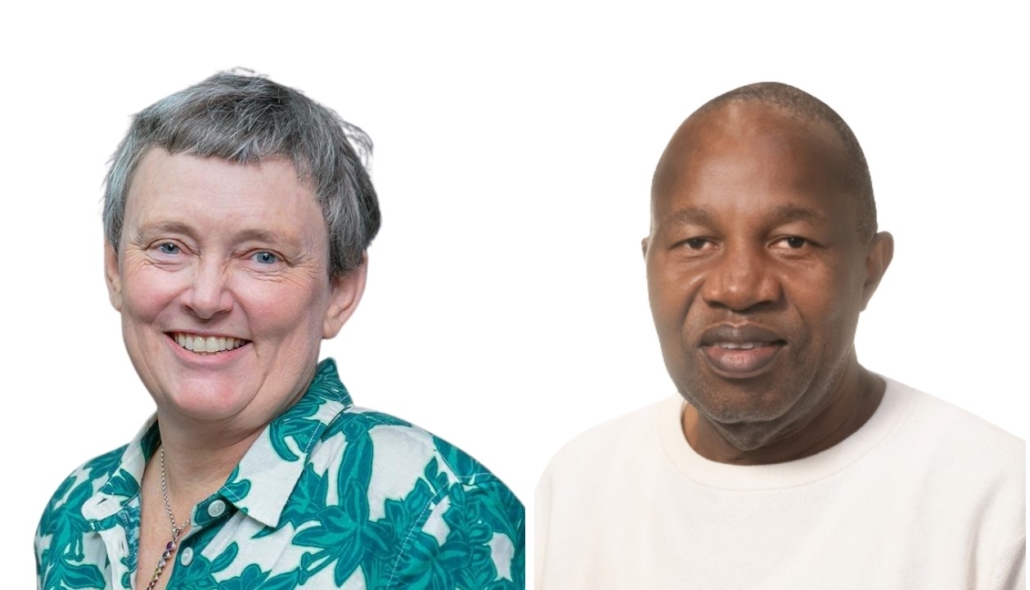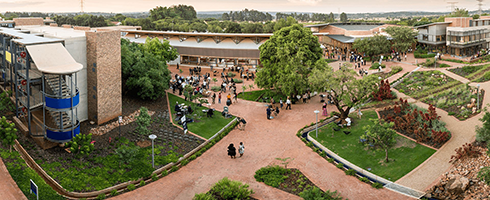You are here: Home1 / Challenge Domains2 / Sustainability Transformations in Africa3 / ‘We need a people’s science’ – Future Africa dialogue urges shift to Afri...
‘We need a people’s science’ – Future Africa dialogue urges shift to African-centred sustainability thinking
If sustainability science is to move beyond inherited binaries, it must open itself to imagination, poetics, and African cosmologies. This was the core message that emerged from the University of Pretoria’s (UP) Future Africa’s sixth Transdisciplinary Dialogue, The Pleasure of Transgressing Borders through the Poetics of Space and Time, held virtually on 12 June 2025.
Professor Lesley Green, author of the book ‘Rock | Water | Life’ and Professor of Environmental Humanities at the University of Cape Town (UCT), delivered a compelling presentation exploring the conceptual foundations that has shaped contemporary sustainability science. She highlighted enduring binaries such as – nature/society and subject/object – that remain embedded in scientific and governance frameworks today.
Citing thinkers such as Aimé Césaire and Isabelle Stengers, Prof Green made the case for poetics in sustainability science, invoking imagination, relationality and a sense of wonder as necessary tools for confronting planetary crisis. “We have to give ourselves the freedom not to have our words marching across the page from one predictable word to the next,” she said. “We need to reclaim the story.”
“Scientific knowledge enumerates, measures, classifies and kills,” he once wrote. Prof Green reminded the audience this was not a rejection of science, but a call to deepen and transform it:
“Poetic knowledge,” as Césaire argued, “is born in the great silence of scientific knowledge.”
She warned that financialised logics have eroded older practices of care and relational knowledge. Citing fisheries policy in South Africa, she explained how traditional frameworks of respect for the ocean were replaced by a system of quotas and biomass: “The ocean became an ATM.”
Responding to the keynote, Professor Maano Ramutsindela, Future Africa Research Chair in Sustainability Transformations, jointly hosted by UP and UCT, reflected on how global sustainability frameworks are often shaped by power, finance, and exclusion.
“We have maintained these boundaries not only conceptually, but materially. Donors are financing this boundary,” he said. “It’s difficult to dismantle because it benefits certain sectors of society. But if we’re serious about sustainability, we need to deal with this.”
He spoke of the violence that arises when people living in close relationship with nature are treated as threats to it. “Instruments like the SDGs are structured in ways that prioritise some goals over others. These are false choices.”
Prof Ramutsindela called for the development of new concepts and frameworks rooted in justice and equality. “We don’t want to say we are all in this together without asking: who is doing the wrong thing? Who is sustaining the boundaries?”
Prof Green emphasised that the conversation around sustainability must be grounded in African contexts and histories. “Much of Africa still runs on biomass. People are still living from the land. That tells us it is not too late to reclaim African environmentalism.”
The dialogue also touched on figures like Amílcar Cabral, whose early work as a soil scientist embraced a process-oriented, integrated science, as well as global indigenous movements calling for personhood rights for rivers and forests.
“We need a people’s science,” Prof Green said, echoing the Zapatista movement’s appeal: ‘Do the science that answers our questions.’ “African thought gives us the leadership we need to change the paradigm.”
The dialogue closed with a call to continue these critical conversations. “This dialogue is vital, not just in South Africa, but across the continent,” Prof Green concluded. “To defend the Earth is to defend the human.”
Professors Lesley Green and Maano Ramutsindela
Watch the full recording of the dialogue (1 hour)




